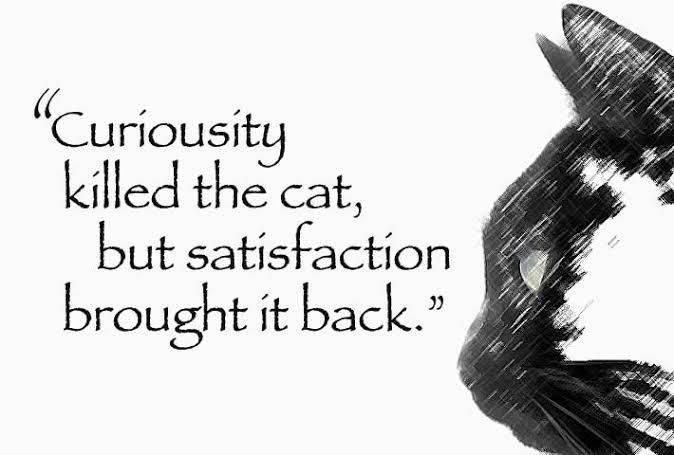Welcome to Kenya’s Gen Z Revolution!
Kenya had been praised to the heavens by the West in yesteryear: it was a beacon of hope and prosperity; East Africa’s most prosperous nation; a success story of capitalism and “development”; and (most important of all) a bulwark of the West amidst encroaching Chinese influence on the continent.
Kenya is a member of China’s Belt and Road Initiative, and Ruto just sent the Kenyan Police to Haiti. 🤷🏼♀️
Related/Notes:
Gen Z Will Lead the People’s Revolution in Kenya (The Elephant*)
This spontaneous, organic movement was significant in three important ways. One, it was leaderless; there were no politicians or political leaders leading the pack, nor was it associated with any political party. Two, it was driven largely by social media; the call to protest was communicated mainly via social media platforms like X and Tik Tok. Three, civil society organisations that in the last couple of decades have been the traditional torchbearers of matters related to good governance and accountability were largely absent or invisible during the protests. In this regard, the movement is very much akin to the Occupy Wall Street movement that took hold during Barack Obama’s presidency in the wake of the 2008 global financial crisis, the “Arab Spring” in North Africa, protests that resulted in the ouster of Sudanese president Omar al-Bashir in 2019, and to the rapidly growing climate change movement currently being championed by young activists like Greta Thunberg, among others.
The June 18 protests demonstrated that it is possible for Kenyans to rally around a cause without being chaperoned or persuaded by any political leader or politician. This is in sharp contrast to the early and mid-1990s when political leaders, such as Martin Shikuku, Kenneth Matiba and James Orengo, could mobilise thousands of people to large pro-democracy rallies at Kamukunji grounds and other places, demanding for the end to Daniel arap Moi’s dictatorial regime. For their efforts, some of these leaders were incarcerated, and it took another decade for Moi to be ousted. The resounding victory of Mwai Kibaki in the 2002 general election saw many of these leaders join government or become elected leaders.
What happened then was that there was no one left to speak for “the people”, except civil society and non-governmental organisations (CSOs and NGOs). During the Kibaki era, NGOs and CSOs also took on the role of educating the public about their rights and responsibilities when it was no longer dangerous to do so.
…
The violence and mass displacement brought to the fore issues that had not been dealt with adequately by both the state and NGOs, such as grievances related to land, inequality and the rule of law. NGOs dealing with good governance worried about democratic backsliding and the deepening of polarisation along ethnic lines. (It is interesting to note that the recommendations of the Truth, Justice and Reconciliation Commission that was established to address these grievances were never implemented by Uhuru Kenyatta when he took office in 2013.)
The Kenyan public was also beginning to question whether CSOs amd NGOs were, in fact, part of the problem afflicting Kenya’s politics; some civil society and non-governmental organisations were viewed as being partisan or aligned to certain political parties or donor countries. Because most of these NGOs and CSOs were heavily dependent on mostly Western donors and donor agencies, which came with their own biases and agendas, few could assert their independence regarding the kinds of projects and programmes they wanted to run. They succumbed to what constitutional lawyer Wachira Maina refers to as the “language of the donors”.
New faces of protest – Kenya’s Gen Z anti-tax revolutionaries (BBC)
Gen Z protests: A revolution aided by technology
What sets these demonstrations apart is their meticulous organisation through social media channels, a tactic that has effectively mobilised thousands of passionate protesters.
…
Another tool used during the demonstrations is Briar, a messaging app tailored for activists, journalists and anyone who needs a secure and reliable communication platform.
Ruto declines to sign Finance Bill to law
*The Elephant’s partners (front organizations):
Ford Foundation, Open Society Foundations, Heinrich Böll Foundation, Kofi Annan Foundation, Progressive International, etc.
Briar has received funding from the Small Media Foundation, the Open Internet Tools Project, Access Now, the Open Technology Fund, the Prototype Fund, Internews, the NLnet Foundation, the Next Generation Internet programme, the ISC Project and eQualit.ie.
Open Technology Fund: Internet privacy, funded by spooks: A brief history of the BBG
The Broadcasting Board of Governors (BBG) is now the United States Agency for Global Media (USAGM).
The USAGM supervises Voice of America (VOA) and Office of Cuba Broadcasting as well as state-funded Radio Free Europe/Radio Liberty, Radio Free Asia, Middle East Broadcasting Networks and Open Technology Fund.
Greta Thunberg: Climate Capitalists/Green Capitalism
Color Revolution – Regime Change Keywords:
Civil Society, Civil Society Organizations (astroturfed CIA/NED/USAID/Corporate front organizations), Digital Rights, Free Speech, Internet Freedom (Global Network Initiative – funded by Big Tech, Department of State, Freedom House, Ford Foundation), (Arab Spring, Social Media Revolution)
